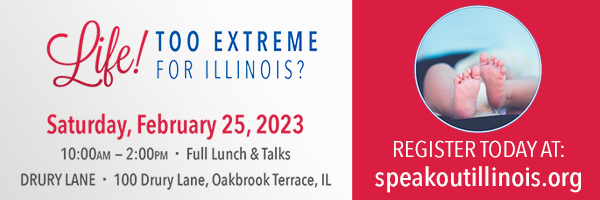Death Coming Soon to A Pharmacy Near You
As of early January 2023, Danco Laboratories, the U.S. manufacturer of the abortion pill, announced that the FDA has made changes to its guidelines surrounding the abortion pill. These changes allow pharmacies, from large chains like CVS or Walgreens to small, locally owned businesses, to dispense the pill to anyone with a prescription.
Many women choose the abortion pill (also known as a chemical abortion) because they assume it’s safer and more natural. However, complications occur during chemical abortion four times more frequently than during surgical abortion. According to Dr. Christina Francis, “approximately one in five women will experience a significant complication,” which often must be treated by emergency surgery.
The abortion pill is actually a two-pill regimen made up of different drugs: Mifepristone, also known as Mifeprex or RU-486, and Misoprostol. When a woman chooses to abort her pre-born baby through a chemical abortion, she first takes Mifeprex. This blocks progesterone, starving the pre-born baby of the nutrients needed to continue developing. One to two days later, she takes Misoprostol, which causes her to deliver her now-dead baby. This part frequently happens in the woman’s own home, so she is responsible for disposing of her pre-born baby’s body, often by flushing it down a toilet.
Unsurprisingly, this causes significant trauma for the woman involved in an abortion. Aside from the moral harm it does to her conscience, seeing her dead child covered in blood and floating in the toilet, often awakens her to the reality of what just happened, causing insurmountable emotional problems she will struggle with for years.
But the emotional trauma resulting from the use of the abortion pill isn’t why it was under guidelines that prevented it from being sold in retail pharmacies. Mifeprex, the first drug in the regimen, is dangerous enough that the FDA gave it REMS status. REMS stands for Risk Evaluation and Mitigation Strategy, which is described by the FDA as, “a drug safety program that the U.S. Food and Drug Administration (FDA) can require for certain medications with serious safety concerns to help ensure the benefits of the medication outweigh its risks. REMS are designed to reinforce medication use behaviors and actions that support the safe use of that medication… REMS focus on preventing, monitoring and/or managing a specific serious risk by informing, educating and/or reinforcing actions to reduce the frequency and/or severity of the event.”
Mifeprex is often dangerous. A few of the possible side effects include:
- Death (a tragic example is this 19-year-old who died after taking the abortion pill)
- Flu or fever-like symptoms
- Hemorrhage
- The need for surgical completion afterwards (the baby didn’t die, or the remains and/or placenta are retained, resulting in a need for surgery)
- Pain in the chest, lower back, side, arms, jaw, or neck
- Infection and possible sepsis
- Prolonged bleeding, from several hours to as long as 30 days
Under the previous REMS guidelines for Mifeprex, women could only receive the pill in person at approved clinics or hospitals that could provide certain medical and safety procedures. But as of January 3rd, 2023, the guidelines have been amended by the FDA so that retail pharmacies who “become certified in the Mifepristone REMS Program” can dispense this highly dangerous pill to anyone with a prescription.
Women in hopeless situations, who believe the lie that the abortion pill is a safe and effective way to deal with a difficult circumstance, are unwittingly walking into a deadly situation. These women desperately need Jesus. This world desperately needs Jesus. The culture of death is so insatiable in its thirst for blood that it’s willing to bypass any concern for human life, and any idea of the sacredness of human life, solely to make death easier, more accessible, and more desirable.
Read more:
Four Doctors Groups Tell Federal Court to Pull Abortion Pill From Market, It’s Dangerous for Women (LifeNews.com)

